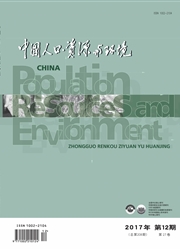

 中文摘要:
中文摘要:
森林采伐限额管理制度已在我国实行30余年,其能否实现森林资源的永续增长是一个悬而未决且具有重要意义的理论命题。为此,本文在对森林采伐限额管理潮度进行制度变迁分析的基础上,以其在1991年和2001年的制度改革为自然实验依据,通过精确断点回翔模型估计出森林采伐限额管理制度变迁各阶段对森林资源的保护作用。研究结果表明:瓤中国成立以后我露森林采伐管制经历了“无管制”、“全面管制”、“分类管制”等三个阶段.政府管制强度总体最现递增趋势。断点回归结果显示森林采伐限额管理制度的全面实施以及2001年的分类管制改革对有林地面积和森林蓄积量的影响均不显著,可见,1991年森林采伐限额管理制度在全国层面实施并没能起到保护森林资源的作用,2001年后国家加大采伐管制力度,朋在绷强公益林采伐管制的前提下,不断增加公箍林区划面积的做法可能会造成森林资源遭受更严重的破坏。究其原因,主要是森林经营者在生存压力或经济激励下可采取“滥砍滥伐”或“俘获”政府等方式突破现有管制。政府一味的加大管制力魔反而会进一步刺激森林经营者“超额”采伐行为。本文间时发现,自1991年以来我国有林地面积、活立木蓄积鼍大幅度的增加主要归功予重点工程造林项目在全国屡面的实施。基于此,认为国家应在限额总量不变的前提下。弱化政府对采伐许可等管理制度的管制力度,并大力发展林逸替代产业,降低森林经营者的山林依赖度.以期从本源上解决森林采伐限额管理制度失灵问题。
 英文摘要:
英文摘要:
The Forest Logging Quota Management System (FLQMS) has been implemented for more than 30 years in China. Whether it can achieve the sustainable growth of forest resources is an open and significant theoretical proposition. Therefore, after analyzing FLQMS institutional change,this paper treated the 1991 and 2001 institutional reform of the FLQMS as a natural experiment and estimated the effect of the institutional change on the forest resources through using accurate hreakpoints regression model. The forest logging regulation has experienced three stages of ' no regulation' , ' comprehensive regulation' and ' classification regulation' from foundation of new China, which means the regulation intensify is stronger and stronger in general. The RD results show that the comprehensive implementation of FLQMS in 1991 and classification regulation in 2001 have insignificant influence on forestland area and forest volume. So, the nationwide implementation of FLQMS in 1999 failed to protect forest resources, and classification regulation after 2001, which means the increase of area of public welfare forests under the circumstances of strengthening the regulation on public welfare forest, may lead to more serious damage to forest resources. This is mainly because the forest operators can break through the existing control by ' illegal logging' or ' regulation capture' under the pressure of surviving and motivation of interests, and the regulation intensity strengthened by government blindly would further stimulate forest operators'‘ excess' logging. It also finds that the sharp increase of forestland area and stocking volume in China is mainly due to the implementation of key engineering afforestation project after 1991. So, we think that the government should weaken regulation intensity of the logging management system, and reduce the dependence of forest operators on mountain forest by developing alternative industry in forest zone, in order to solve the regulation faihtre of FLQMS.
 同期刊论文项目
同期刊论文项目
 同项目期刊论文
同项目期刊论文
 期刊信息
期刊信息
